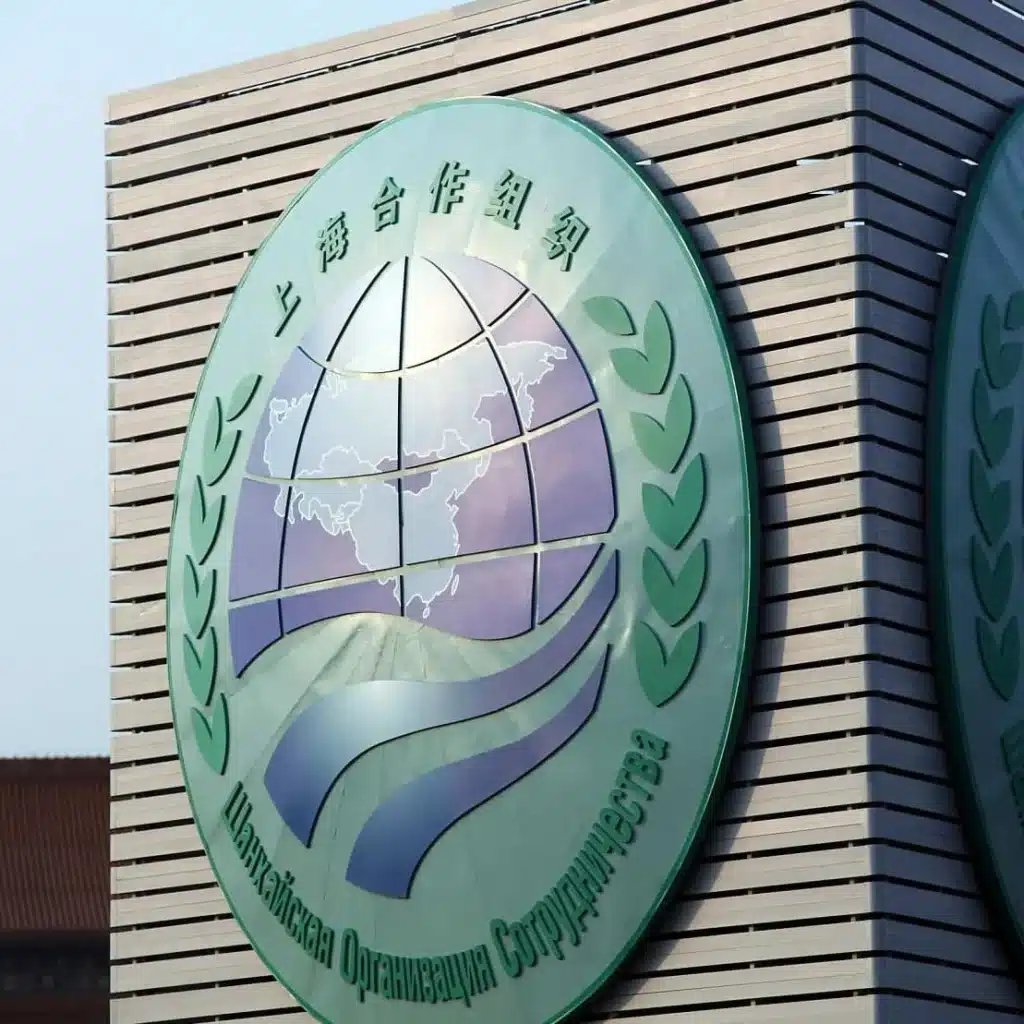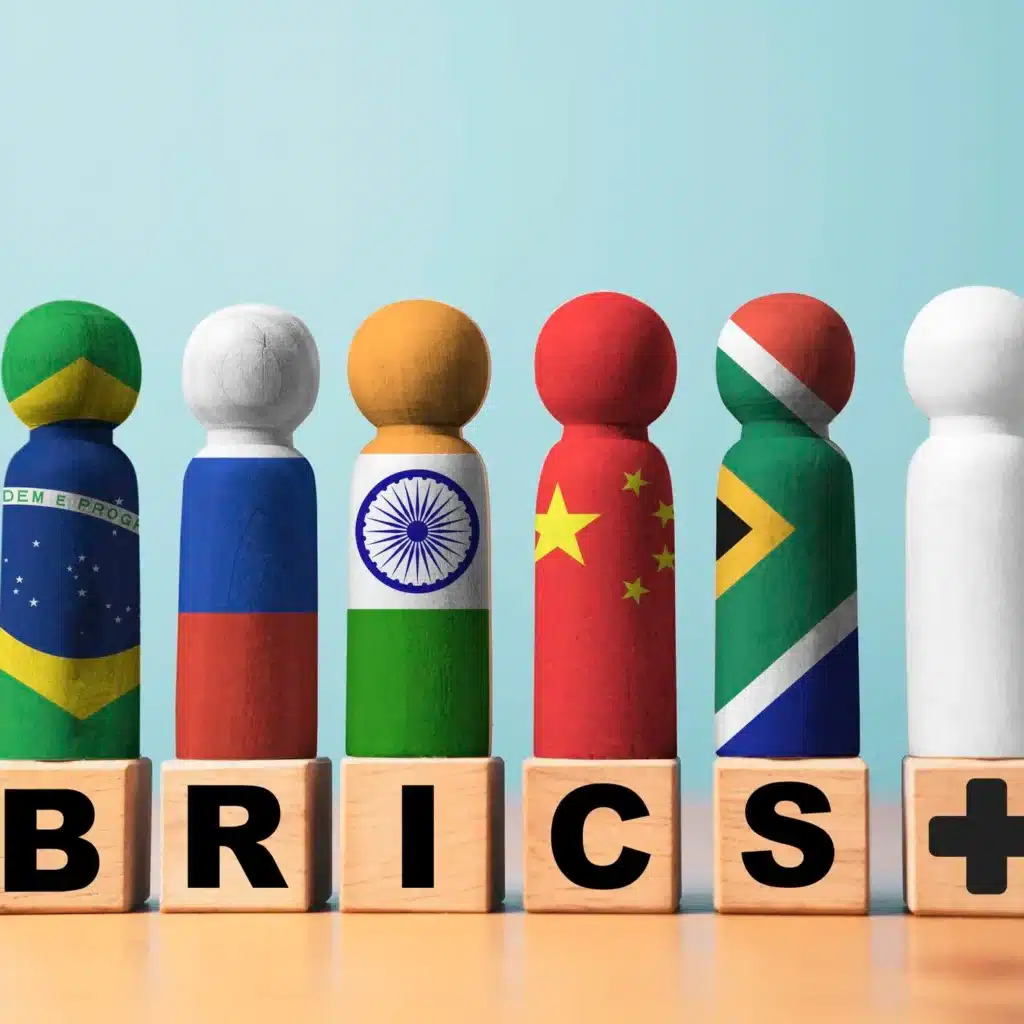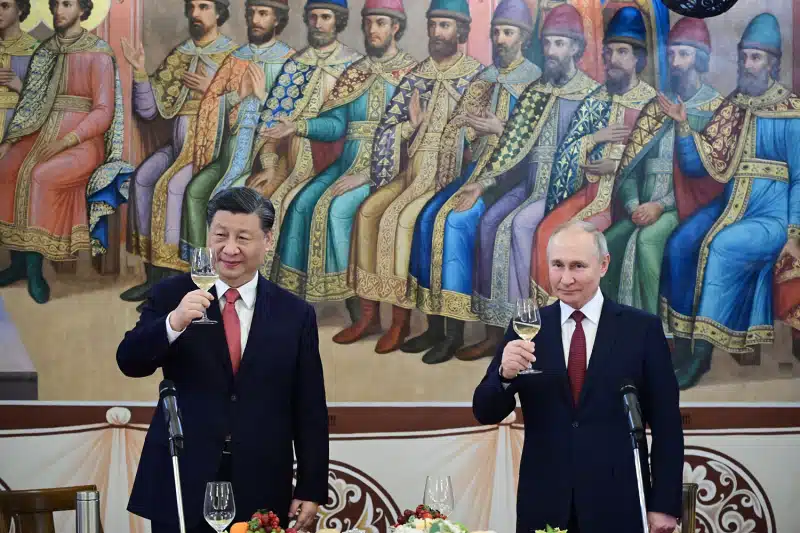For years, a single union has dominated the call for ‘order, order’ in global security. Now, BRICS and the SCO are shaking the foundations of this unipolar world order. These newcomers—BRICS (Brazil, Russia, India, China, South Africa) and the Shanghai Cooperation Organization (SCO)—are not only challenging economic dominance. They are also fundamentally questioning the unipolar security structure established by NATO. In this transition, BRICS and the SCO emerge as powerful symbols of a shift towards alternative models of global governance. The crucial question remains: can these organizations truly dismantle NATO’s hegemony and usher in a more multipolar world?
Shanghai Cooperation Organization (SCO)
The Shanghai Cooperation Organization (SCO) traces its roots back to the “Shanghai Five” mechanism, established in 1996 by China, Russia, Kazakhstan, Kyrgyzstan, and Tajikistan. This group evolved into the SCO in 2001 with the inclusion of Uzbekistan. India and Pakistan joined in 2017, Iran joined in 2023, and Belarus was admitted at the recent Astana summit. Afghanistan and Mongolia currently hold observer status. NATO member Turkey is among the 14 dialogue partners spanning Asia, the Middle East, and the South Caucasus. This makes it the largest organization in the international system in terms of extent and membership that is not a military alliance or an economic community. The United States sought observer status but was declined in 2005.
The Shanghai Cooperation Organization (SCO) initially concentrated on security and economic issues in Central Asia. However, amid increasing tensions and competition with the West, Beijing and Moscow are increasingly positioning the organization as a platform to promote an alternative to the U.S led order.
Development and Growth
Chinese President Xi Jinping outlined an ambitious agenda for China’s leadership within the SCO at a recent summit. This agenda includes expanding activities such as convening a political parties forum. China also aims to promote financial transactions in local currencies to reduce reliance on the U.S. dollar. Additionally, China plans to develop a “financing platform” within the group. Furthermore, China seeks to establish a “universal center” for security within the SCO. This center would have branches focused on addressing various challenges and threats through expanded intelligence sharing and counter-narcotics cooperation.
Russian President Vladimir Putin proposed establishing an SCO energy forum, a step that could de-link oil from the U.S. dollar. Technological advancements in the natural gas industry, particularly the ability to ship Liquefied Natural Gas (LNG) globally, have enabled Russia to leverage its vast natural gas reserves. This has allowed Russia to achieve global price control similar to that of OPEC. The SCO, which includes Russia and Iran — the holders of the world’s largest and second-largest proven natural gas reserves — could potentially evolve into a powerful cartel. Such a cartel could be capable of dictating gas prices worldwide, akin to OPEC’s dominance in oil.
The recent participation of NATO member Turkey in the Summit in Astana has increased the significance of the SCO. Turkey became a dialogue partner in 2012, indicating that the organization is opening up to more countries on the international level. This trend suggests that the SCO could grow in the future. It may potentially include Arab States such as Egypt, Saudi Arabia, or the UAE.

BRICS
BRICS originally began as BRIC, consisting of Brazil, Russia, India, and China. The first summit was held in Russia in 2009. South Africa received an invitation to join in 2010 and participated for the first time at the 2011 summit. This transition turned the group into BRICS. The bloc also established the New Development Bank, which finances various projects across member states. South Africa hosted the annual summit in August 2023. BRICS held the latest meeting virtually to address the Gaza crisis.
BRICS is positioning itself as an alternative, if not a replacement, to the US-led Western leadership. While the US remains dominant in economic and local initiatives, it is perceived as lagging in shaping the future of global politics.
Over 40 countries have expressed interest in joining BRICS. Egypt, Ethiopia, Iran, Saudi Arabia, and the United Arab Emirates became official members as of January 1, 2024. The inclusion of Iran and Saudi Arabia suggests that think tanks in both nations recognize the potential dangers of prolonged ideological rigidity.
The abbreviation BRICS originally stood for an economic group, but they have turned into the geopolitical one exerting definite impact. The actual GDP of BRICS member states represents about 27% of the total global GDP. In terms of Purchasing Power Parity (PPP), it constitutes around 33% of total GDP. This economic power enables BRICS to explore new forms of the financial and trade system. These new forms aim to minimize dependence on Western-based organizations such as the IMF and the World Bank.
Aligning Interests
The bloc aims to promote the use of local currencies and possibly issue a currency for the entire BRICS group. This move seeks to reduce the US dollar’s monopoly in international business. While BRICS is not a military organization, its members’ strategic interests occasionally align with those of NATO. Relations between Russia and China are quite friendly. They not only hold joint military maneuvers but also synchronize their foreign policies. NATO regards this cooperation as suspicious, seeing it as a direct challenge to the organization’s interests.
The desire of Turkey to join BRICS also plays a role that adds the extra layer to the analysis. Therefore, Turkey, as a NATO member, has engaged with BRICS and the Shanghai Cooperation Organization (SCO), which has drawn criticism for its commitment to the Western alliance. This balancing act fits into a broader context where countries, including NATO members, seek to diversify their global relationships, thus threatening the unity of the alliance.
In recent years, the BRICS countries have more often used their own collective initiatives for the becoming of the decisions made at the international top-level organizations. Sometimes their views on the Syrian war, and the Crimean crisis differ from those of the West and prove that they can hinder or oppose the West’s actions.
Also, the competition between BRICS and NATO over the influence of Africa is a microcosm of the broader BRICS-NATO rivalry. This assertiveness in the international diplomacy make BRICS as a counterpart to NATO and its allies.

Challenges
Disunity amongst main actors of the SCO is also a problem of the organisation. The conflict between India and Pakistan continues to exist over the possession of Kashmir. Likewise, India and China share another major conflict of interest, the territorial dispute, that is not very ancient but has often escalated to violence. Indian PM Narendra Modi was absent from the summit and mordantly represented by his foreign minister to vent his grievances at two neighbors.
BRICS also faces such internal conflicts among its members. It has a relatively weak institutional structure, and its framework is not yet as clearly outlined as it is the case with such organizations as the European Union or NATO.
Co-ordination of the group is, therefore, based on annual gatherings and, declarations of what is often referred to as ‘the group of the year’, for the lack of a permanent secretariat or any formally constituted structure. This lack of institutionalization can present difficulties in the development and perpetuation of meaningful, lasting endeavors.
Another problem is economic inequality in the membership of the BRICS. China is the largest player in the global economy and therefore exerts significant influence in the intra-BRICS trade resulting in disparities. For instance, due to an economic partnership with China, Brazil has undergone a process of deindustrialization. These asymmetries may lead to tensions and decreased efficiency of the group as an equal partnership.
The addition of new members from the Middle East and Africa makes BRICS more representative of the Global South countries. However, the main limitation is the lack of representation of Latin American countries, mainly after the exclusion of Argentina. Moreover, the process of synchronizing the various economic needs and demands of new members with the BRICS countries will be another challenge.

Conclusion
Indeed, it would be unwise for the west to underestimate the SCO and BRICKS because internal conflicts, economic inequality and other problems also exit in NATO’s structure.
BRICS and SCO are substantially larger than NATO in geographic span, and just as important in population, while establishing a strong presence of these organization in Europe in the form of Russia and Belarus. Together with its countries, only SCO produces for one-third of the Gross Domestic Product of the entire world.
However, whether Putin and Xi would be able to bring about a decisive change in the scenario and transform these organizations into a potent security threat to NATO is a big ‘open-ended question’. The collective defense to be achieved in the SCO does not include any commitments like those of NATO’s Article 5. Its internal balances are rather fragile, and the sole operational mandate of the institution is to combat terrorism, vested in the SCO RATS.
In order to strike the right balance of power between NATO, SCO and BRICS the latter are to expand their membership with more members of the BRICS inviting more of the emerging markets and SCO inviting more Middle East and SE Asian nations. One of the issues that have drawn a lot of focus is that there is a necessity of setting up a permanent secretariat for BRICS. Capacity development in those blocs can only be enhanced through holding training sessions, technological cooperation, and liberalization of the economies with the with blocs concerned. If SCO and BRICS are able to form partnerships with other developing countries and are active within international organizations, they will be able to weaken the influence hold by the west and create a new multipolar world order.
The views expressed in this article are the author’s own. They do not necessarily reflect the editorial policy of the South Asia Times.




![Afghan men search for victims after a Pakistani air strike hit a residential area in the Girdi Kas village, Nangarhar province on February 22, 2026. [Aimal Zahir/AFP/Getty Images]](https://southasiatimes.org/wp-content/uploads/2026/02/gettyimages-2262391441.webp)


